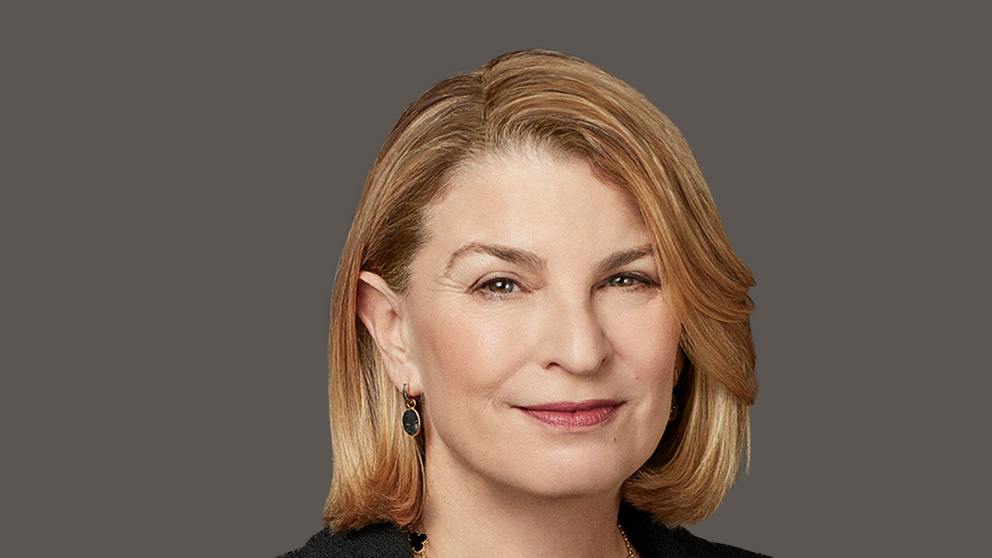During days spent in the federal government early in my career, I formed a theory. I believed it was business (and usually big business) that had a greater capacity than government to advance civil society.
In my late twenties, I packed up my belongings and moved to New York City to test my thesis. I landed a public relations job on the low rungs of the corporate ladder at the American Express Company. From there, I observed social change in action. In 1997, American Express was among the first companies to offer benefits to domestic partners, including same-sex partners. This was groundbreaking and more than a decade ahead of New York State legalizing gay marriage. Business leaders move much faster than politicians to extend these essential benefits and express inclusivity. This was the first, but by no means the last, time I saw companies take bold stands, speak out and light the way.
In August 2019, the Business Roundtable, an organization of the top chief executives in the U.S., redefined the purpose of a corporation to make clear that all stakeholders are essential; not just shareholders. Finally, the official definition matched what I had experienced in my 30+ years in Corporate America.
Now, the spotlight is on business to stand against racism. We’ve read the statements of support to the Black community. We’ve seen the hashtags. We’ve watched the good intentions. The first necessary step for business seems clear: honest dialogue. But it may be the steps that follow that matter most.
In the weeks after George Floyd was murdered, I was invited to a town hall with Pfizer’s Global Black Community (GBC), one of many colleague-led affinity groups. I heard raw, impactful stories from members of the GBC about their experiences at Pfizer and in their communities. A point made by the head of the GBC resonated with me. He talked about the importance of action. He said: “Be a doer.” Be the individual, be the company, that builds a reputation on doing.
Pfizer has more work to do, but I’m able to share four actions that are happening now:
Speak out externally
Whether the question is about COVID-19 or racial injustice, the answer is the same: We are in this together and silence is no longer an option. In June, Pfizer CEO Albert Bourla was featured in a Business Insider article on racial equity action plans and earlier in the year we allocated some of our TV ad buy for two Public Service Announcements in response to the coronavirus pandemic. Another powerful example of speaking out comes from Nike, which brilliantly pivoted its “Just Do It” slogan to address racism in a new ad called “For Once, Don’t Do It.”
Join with others
Pfizer is joining partnerships and pledges to make our views against racism clear. For example, Pfizer joined the Partnership for New York City, which ran an open letter in The New York Times featuring CEOs speaking out against racism.
Contribute to further change
Pfizer and The Pfizer Foundation committed to a multi-million-dollar gift to a number of organizations focused on healthcare disparities and social justice, and Netflix pledged $5 million to support Black creators, youth organizations, and businesses. By mid-June, Axios reported that Fortune 100 companies’ donations to battle racism and inequality totaled more than $2 billion and I’m sure that number will continue to climb.
Amend the PAC bylaws
Pfizer is also making changes to its Political Action Committee (PAC). We would never knowingly make a contribution to any politician who has racist views, but to be very explicit we are updating our PAC bylaws to add a clause regarding consistency with Pfizer’s core values and make clear we’re speaking about racism in particular.
In addition to actions at the Corporate level, I’ve created a task force to hold myself and the division I lead accountable. It is led by colleagues who raised their hands, and no one was turned away; anyone interested is included and has a voice in our actions. We are also having an ongoing series of optional small group “courageous conversations” to create space for sharing and listening.
I want to be a doer and ensure all Pfizer colleagues—whether scientist or engineer or accountant—feel seen, heard and cared for, and empowered to be doers.

